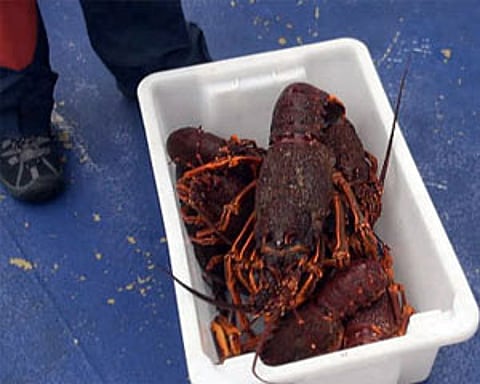

Rock lobster fishers in the Australian state of Tasmania are opposing the government's plan to limit the harvest of larger lobsters. Fishers are already struggling and they want further scientific evidence that the ecosystem really needs larger lobsters.
Commercial operators gathered in Launceston to discuss a draft management plan that would protect larger lobsters by setting a maximum size limit on Tasmania's east coast.
Higher numbers of larger rock lobsters would help curb the population of sea urchins, a local pest, reported ABC News.
But the commercial fishing sector has lost AU$8 million (US$8.5 million) in revenue in the past few years due to record low catches and a trade halt with China, Tasmania's number one market, since last December, The Mercury reported.
Rodney Treloggen, Tasmanian Rock Lobster Fishermen's Association spokesperson, said fishers therefore demand additional scientific proof that larger lobsters will help get rid of the invasive sea urchins.
"In this whole debate about a maximum size limit there are other ways of getting the same result with a lot less anguish to the participants in the fishery activity," he said.
"Science, to us, is just not solid enough and we're starting to get sick of banging our head against the wall. The questions that we've put are simple: how many large centrostephanus does a large rock lobster eat?" Treloggen asked.
Apart from that action, the government also intends to lower the total allowable catch (TAC) of rock lobsters to increase their numbers, according to spokesperson Robert Gott.
"We're interested in putting a management framework in place that will ensure that rock lobster fishermen have viable businesses going forward into the long term," he stated.
Regarding the trade halt with China, a contingent will be visiting the country next week in an effort to negotiate a deal for Tasmanian fishers.
"We're going over with the intention of hopefully being able to sign some heads up or an MOU (memorandum of understanding) with some officials and some buyers over there," he said. "We've got a series of meetings arranged and we're quite confident, we're hopeful anyway, but confident too, that something will come out of that."
The next priority would be to pressure the Federal Government to work out trade negotiations with China to facilitate the process for fishers: while New Zealand pays zero tariff, Tasmania pays 28 per cent, Treloggen explained.
FIS (www.fis.com)
